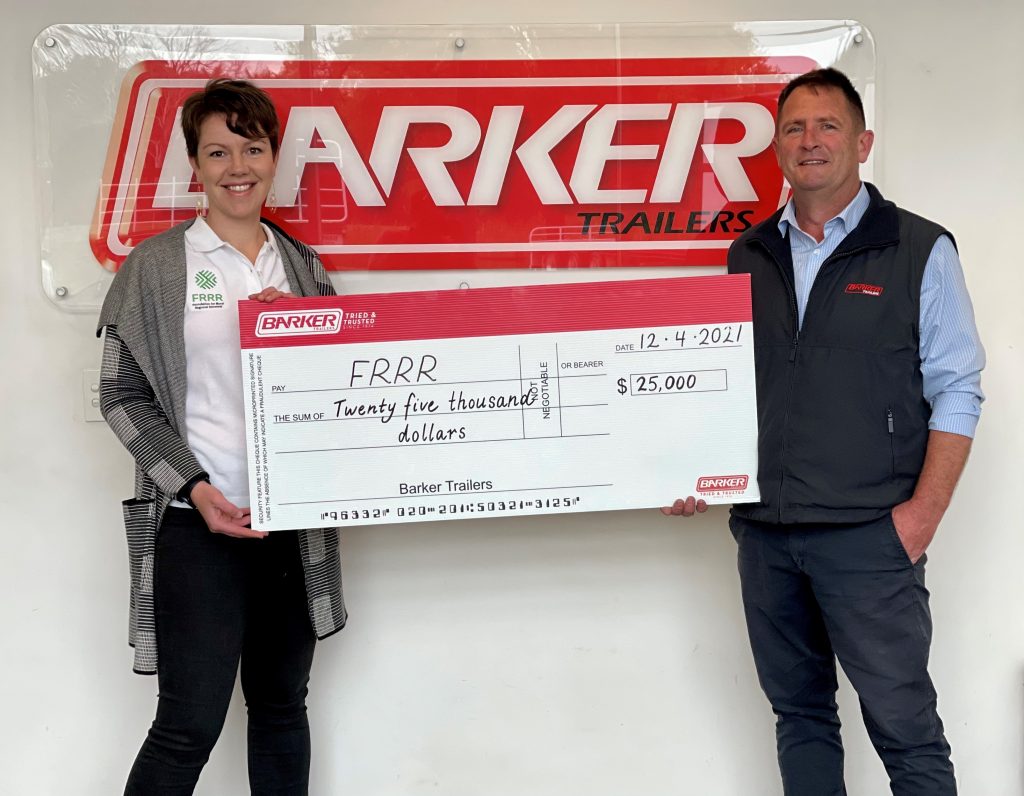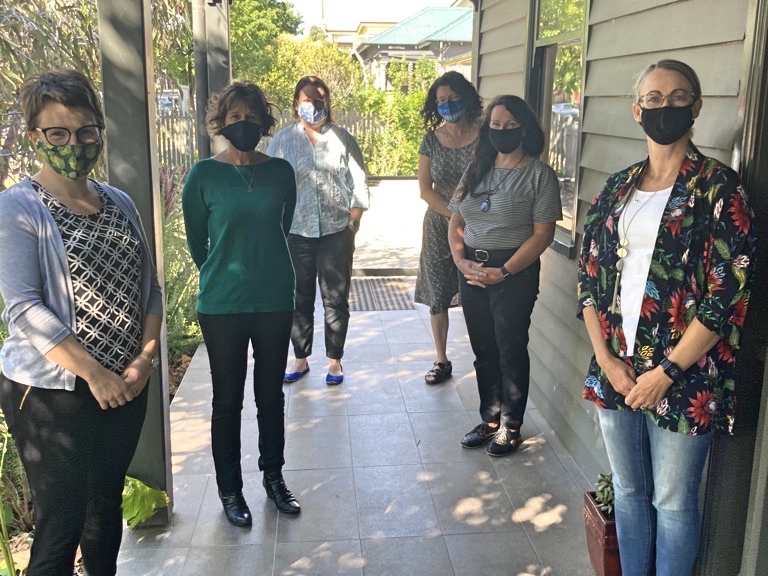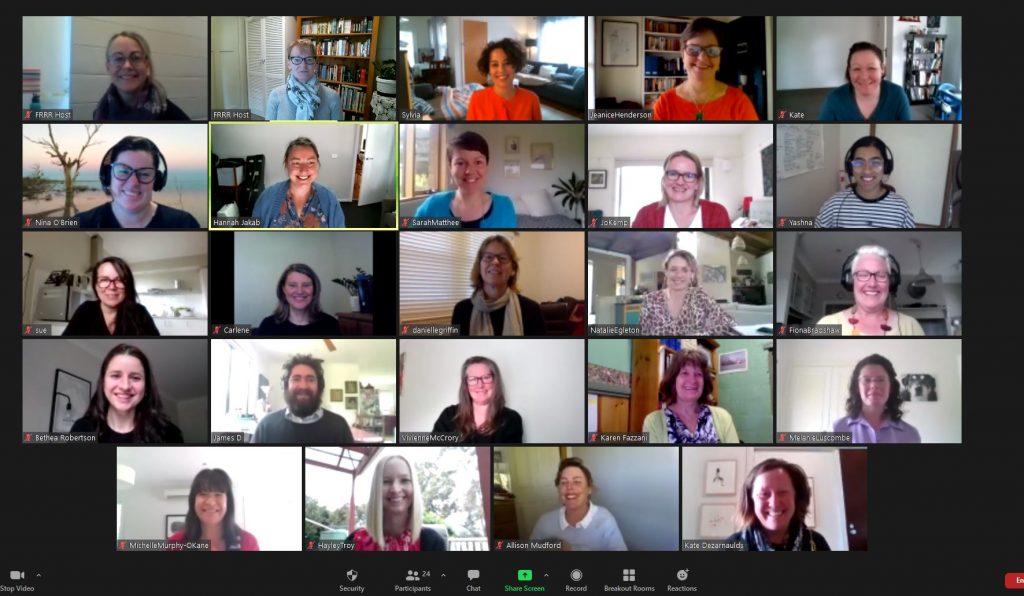CEO’s Message & Our Team
Writing this message is a welcome opportunity to reflect on just how much has happened since our last report. This last year was certainly a very challenging period for remote, rural and regional Australia, but certainly not without its highlights.
We have been inspired by the many amazing community leaders, who think innovatively and are so persistent and dedicated to strengthening and sustaining their community. The way in which they have adapted and evolved is truly impressive, especially given the trauma, burden and fatigue that many are feeling.
The financial year began with FRRR celebrating our 20th anniversary, a chance to reflect on FRRR’s history and the impact we’ve made through powerful collaborations and with the support of our donor partners. If you didn’t get to do so last year, I encourage you to watch some of the videos captured.
In our first year of a new five year strategic plan and with 20 years behind us, it was timely to refresh our new brand and launch a new website. Our new look builds on the strength, connections and interdependence of remote and rural areas. It also reflects FRRR’s model of connecting philanthropy, business, government and community groups to make Australia stronger and more vibrant.
Another highlight of the first six months was our Tackling Tough Times Together program being recognised as the Best Grant Program at the Australian Philanthropy Awards. The award confirmed the value of targeted, considered and effective philanthropic grant programs in bringing about positive social, cultural or environmental change.
Our work over the last 12 months has further affirmed that approach, especially in the wake of the significant disruption caused by cumulative (and occasionally simultaneous) disasters like fires, floods, storms, a mouse plague – and of course the ongoing impacts of COVID-19. While these events meant that many projects had to change, we were able to work with community groups to ensure funds were directed where they were most needed, or to allow for projects to be rescheduled.
It is a privilege of my role to learn about the ideas communities have, and the impacts they are having on issues from energy security and revitalising community assets, to economic development initiatives that capitalise on both natural beauty and local creativity, hosting events (this year rarely in person) or addressing housing supply, access, and affordability. These are being driven from the hyper-local level, with local, regional and national impact.
Thank you to our partners

Our ability to support these locally-led initiatives is thanks to the generosity and shared vision of our donor partners. Despite many competing requests, their ongoing support of FRRR meant we could sustain and in some cases expand our grant programs, and launch new initiatives, including:
- the Future Drought Fund’s Networks to Build Drought Resilience;
- Investing in Rural Community Futures – Bay and Basin;
- Investing in Not-for-Profit Capacity;
- The Bushfire Recovery Fund; and
- The Volunteer Emergency Services Fund.
Generous donors also enabled us to begin providing bushfire recovery grants just a few months after the Black Summer fires. In this financial year, we distributed a further $4.1M through our core programs and dedicated Giving Sub-Funds, with a focus on medium to long-term recovery.
A huge thank you to all of our donor partners – large and small – for their trust in FRRR and their shared belief in the value of investing in community-led projects to create strong, vibrant remote, rural and regional communities.
A committed team
Thank you too, to the Directors of FRRR for their ongoing voluntary support, both in the governance and strategic direction of the organisation and as advocates for rural communities. In addition, the expertise they bring to program advisory committees and grant decisions is invaluable. Despite only being able to meet face-to-face once during the year, they have all been proactively engaged in FRRR’s work, and I especially appreciate the support of FRRR’s Chairman Tim Fairfax.
I also acknowledge the truly extraordinary efforts of the entire FRRR team. While we were lucky to come together face-to-face in December, the bulk of our year has been spent working from home on our own. It has been a very challenging time, especially for those who have experienced multiple lockdowns and those who added home-schooling to their workload. Despite all those challenges, the professionalism, dedication and willingness to support the communities we partner with was as strong as ever. So too was your support for one-another. I am very proud to work alongside you. Thank you.
Looking ahead
FRRR will continue to adapt and evolve, and to work closely with our donor partners, and our colleagues to help remote, rural and regional communities thrive. In the coming year, we will work hard to expand into states where we are not as well-known, especially Western Australia, with work already underway on appointing an Advisory Board. We will also increase our focus on engaging with and granting to remote communities, recognising the additional costs and inequities they face.
We will also continue to broaden our work within communities, working closely alongside local leaders to strengthen capacity through support that goes beyond grants – whether that’s sharing expertise, leveraging our networks, brokering collaboration, or advocating on their behalf.
We will continue to focus our efforts on the intersections of people and place, and the pressing challenges around disaster resilience and climate solutions, through using all of our organisation’s levers to connect, learn, resource, inform, influence, and back the ideas and actions of those leading the charge for their community’s and the nation’s aspirations. I look forward to sharing that journey.
Natalie Egleton
CEO
on Dja Dja Wurrung Country



